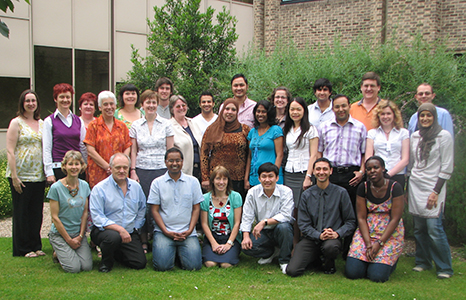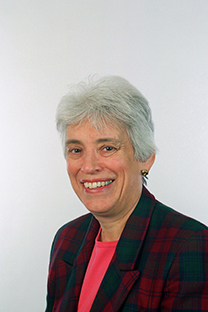March 9, 2016, by Editor
Joy Wingfield’s blog for International Women’s Day 2016
I rarely think of myself as a scientist. That’s because popular images of scientists in my youth used to be wild-eyed souls in white coats and goggles surrounded by bubbling retorts and bunsen burners. The equipment has modernised: micro-assays and computers now but the media still represents scientists as lab-workers finding the inevitable medical breakthrough that will cure us all in “5 – 10 years”. But I am indeed a woman who has studied the pharmaceutical sciences.
I was going to be a brilliant therapeutic pharmacologist; that was my strength at my trendy Chelsea School of Pharmacy (subsumed into King’s decades ago) but, rare swot that I was, I also passed the compulsory “forensic” examination (in pharmacy law ) first time (we had two attempts). I also wanted to earn money, move around the country and engage with patients directly so community pharmacy was my first job. Engaging with patients lost its charm quite rapidly for me so I jumped at the vacancy for an RPSGB (now under the GPhC) inspector within six years of qualifying.
That set me on a wholly unexpected career in the application of law and ethics to the practice of pharmacy. And it’s been great. Life as an inspector in the days before mobile phones with a territory comprising five counties and over 1,000 pharmacies made me self-reliant, resilient and comfortable in my own company. And, of course, all the other inspectors and virtually all the pharmacy owners were men so that was fun too! I also learned a great deal about the business of community pharmacy: what can be achieved and what excuses don’t wash. I learned to be a policeman, to quote Act and Section rather than “the law”, to take evidence, be cross-examined in court and disciplinary hearings and to extend my range to animal medicine law culminating in a diploma in agricultural and veterinary pharmacy and later an MPhil in the European law governing the control of antibiotics in animal husbandry. As a direct result of the world not showing proper respect and constraint in this area, we are now experiencing frighteningly high levels of resistance in our hospitals and elsewhere.
It is inevitable as you scale a career ladder that you will move further away from the dispensing bench and into management. I am no exception. After the inspectorate, I spent five years in senior posts within the London RPSGB law department and the acquisition of a Master’s degree in Health Law (LLM). Then I was head hunted by Boots and came to Nottingham to become Assistant Superintendent for the company’s 1500 branches. In reality this approximated to being Superintendent as Boots were more or less the sole corporate power payer on the block in those days and the Superintendent was constantly absent, being occupied in pharmacy politics and community pharmacy representation on RPSGB Council, committees and working groups.
After ten years “risk managing” Boots’ burgeoning business and, it has to be said, constantly criticising the lack of deep legal and ethical awareness amongst our pharmacists and their reluctance to make decisions for themselves rather than endlessly seeking guidelines and rules, I was invited to put my effort where my mouth was and be seconded to my honorary chair at Nottingham to teach on the MPharm course. I think I made a difference. I won funding for a project to share learning in law and ethics across all the UK Schools of Pharmacy, we made radical changes to the course which have been adopted and extended even further in recent years and I consolidated my reputation by writing textbooks, outside speaking, setting up PLEA ( a special interest group for pharmacy law and ethics) and publishing widely. So, though technically retired, I continue some of these activities through my consultancy even now.

Division of Social Research in Medicines and Health at the School of Pharmacy, The University of Nottingham
Pharmacy and law and ethics are great partners. Think of the focus on professionalism in healthcare professions today – that’s the proper manifestation of ethical care for patients within a framework of rules that should be interpreted intelligently and, on occasion, ignored.. Yes, I DO still use the science sometimes; I needed quite a lot of memory searching and researching BNFs and the internet last year to prepare an expert witness statement for a compensation claim but to do it properly I also needed my knowledge of civil law, court procedure and the rules of evidence.
I feel I should wind up with some words of wisdom and I can echo many of those from Rachel Elliott’s blog. Progress is a matter of hard work AND luck. Sometimes it’s just a case of being in the right place at the right time but you need to keep your head up, see what opportunities are opening and be prepared to change tack, learn new skills and move – sideways if necessary – to position yourself favourably. And finding a “niche” that few aspire to – some say pharmacy law is deeply “anoraky” and pharmacy ethics too “airy fairy” – is immeasurably helpful. Pharmacy is an intensely practical application of science, and women are intensely practical. Good choice!
Joy Wingfield is Honorary Professor of Pharmacy Law and Ethics at the University of Nottingham.
No comments yet, fill out a comment to be the first



Leave a Reply